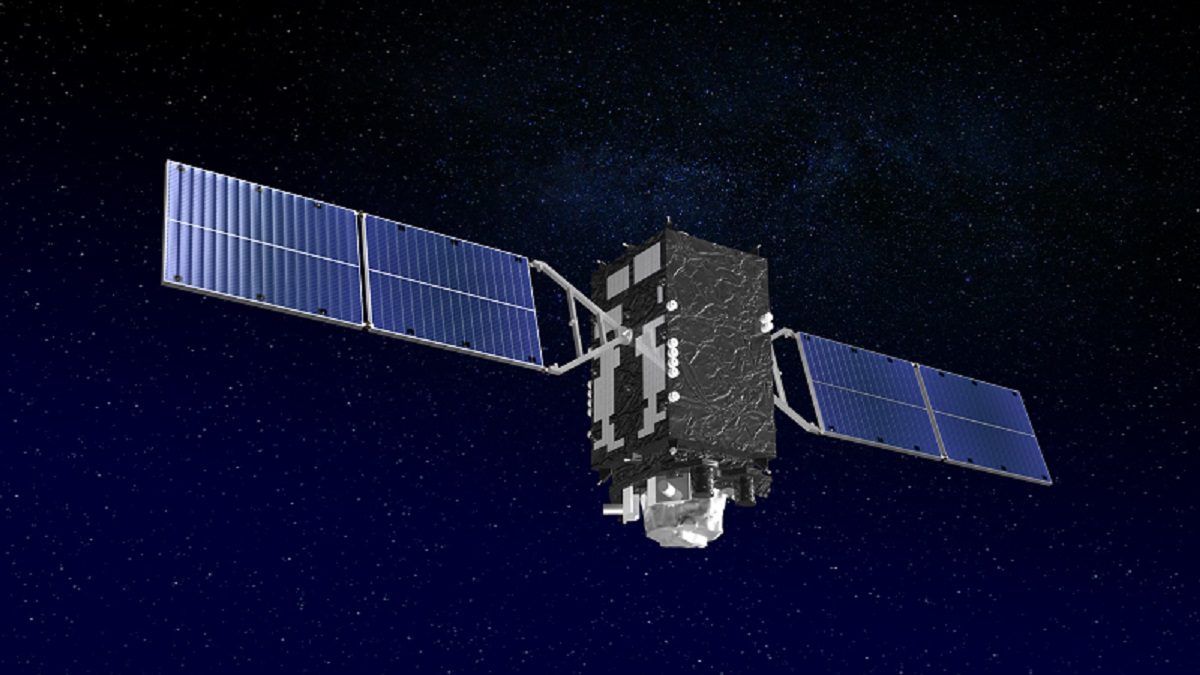Government Plans to Help Pacific Island Nations Cope with Natural Disasters Using Michibiki Quasi-Zenith Satellite System

A rendering of a Michibiki quasi-zenith satellite
1:00 JST, July 17, 2024
The government plans to enhance measures to help island nations in the Pacific Ocean cope with natural disasters by using the Michibiki quasi-zenith satellite system.
It aims to build a system that distributes information via the Michibiki satellites about natural disasters such as earthquakes and tsunami that is issued by the countries’ governments to local residents.
The Japanese government expects that people in the island nations will utilize the information for evacuation from tsunami and other prevention measures, as local people can get accurate information even if ground-based telecommunications systems are cut off.
Prime Minister Fumio Kishida is scheduled to announce the plan during the Pacific Islands Leaders Meeting (PALM), which started in Tokyo on Tuesday.
In the future, disaster-related information for the Southern Pacific that the Japan Meteorological Agency (JMA) announces will be provided to the island nations.
Information about earthquakes, tsunami and other disasters that governments of the island nations will announce will be transmitted to the Cabinet Office’s control station via underwater cables.
When receivers in the island nations get information from the Michibiki satellites, the island nations’ governments will call on people to evacuate or take other measures via sirens or other means.
The Japanese government believes the warning system will be similar to the community wireless systems used in Japan, and it will consider transmitting the information to electronic bulletin boards in public places in the future.
Initially, the government aims to introduce the system in Fiji in the next fiscal year. It is scheduled to begin sharing information about disasters from the JMA with the Fiji government.
The government plans to run an experiment of the system in the summer or later this year and disseminate the system to all other Pacific island nations.
Most of the nations are volcanic islands or atoll islands. As they are vulnerable to earthquakes and tsunami, their responses to natural disasters are a matter of urgency.
The Michibiki satellites orbit over Japan and Southeast Asian countries, and thus, the Pacific island nations are in locations suitable for receiving the information.
By expanding cooperation in the field, the Japanese government also aims to rival China, which has increasing influence over the island nations through the construction of infrastructure and by other means backed by its economic strength.
The PALM summit of the leaders of 16 countries and two regions, including Japan, Palau, Micronesia and the Marshall Islands, runs through Thursday.
The leaders will discuss climate change and responses to natural disasters, among other issues, and will likely confirm cooperation in maritime fields.
Top Articles in Politics
-

Japan PM Takaichi’s Cabinet Resigns en Masse
-

Sanae Takaichi Elected Prime Minister of Japan; Keeps All Cabinet Appointees from Previous Term
-

Japan’s Govt to Submit Road Map for Growth Strategy in March, PM Takaichi to Announce in Upcoming Policy Speech
-

LDP Wins Historic Landslide Victory
-

LDP Wins Landslide Victory, Secures Single-party Majority; Ruling Coalition with JIP Poised to Secure Over 300 seats (UPDATE 1)
JN ACCESS RANKING
-

Producer Behind Pop Group XG Arrested for Cocaine Possession
-

Japan PM Takaichi’s Cabinet Resigns en Masse
-

Man Infected with Measles Reportedly Dined at Restaurant in Tokyo Station
-

Israeli Ambassador to Japan Speaks about Japan’s Role in the Reconstruction of Gaza
-

Videos Plagiarized, Reposted with False Subtitles Claiming ‘Ryukyu Belongs to China’; Anti-China False Information Also Posted in Japan





















